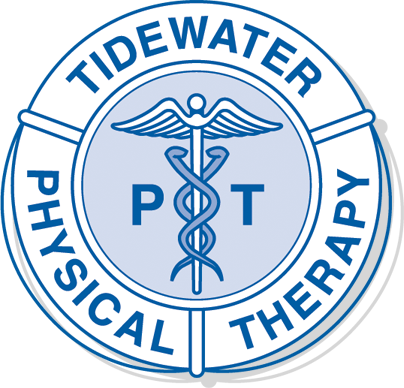October is National Physical Therapy Month

October is National Physical Therapy Month
Tidewater Physical Therapy supports National Physical Therapy Month by promoting the message that sometimes physical therapy is a safe and effective alternative to opioids for long-term pain management
Easton, Md. – September 25, 2016 – Tidewater Physical Therapy Rehabilitation and Associates P.A., is supporting National Physical Therapy Month (NPTM), by promoting the message that in some instances physical therapy is a safe and effective alternative to opioids for long-term pain management.
NPTM, led by the American Physical Therapy Association (APTA), is a nationally recognized month of awareness each October that educates the public on the benefits of physical therapy. This special month of awareness has become so popular that the APTA dedicates a special messaging campaign every year under the umbrella of NPTM. This year, the focus is to increase the understanding that sometimes, physical therapy is a safer alternative for a patient to manage his pain versus long-term opioid use.
The APTA shares that the Centers for Disease Control and Prevention (CDC) reported that in 2012 health care providers wrote 259 million prescriptions for opioid pain medication, enough for every American adult to have their own bottle of pills. Also, every day, over 1,000 people are treated in emergency departments for misusing prescription opioids. Further, as many as one in four people who receive prescription opioids long-term for non-cancer pain in primary care settings struggles with addiction. APTA further highlights the March 2016 guidelines released by the CDC that urges non-opioid approaches for the management of chronic pain. The CDC guidelines indicate that opioids may be appropriate for situations including cancer treatment, palliative care, end-of-life care, and certain acute care situations; however, the CDC guidelines also suggest pairing opioid therapy with non-opioid therapy, and their prescriber checklist recommends trying non-opioid therapy first.
Physical therapists are highly educated and trained healthcare professionals who are licensed to help patients reduce pain and restore mobility. Physical therapists examine each individual and develop a plan, using treatment techniques to enhance the ability to move, reduce pain, restore function, and prevent disability or further injury by creating wellness-oriented programs for healthier and more active lifestyles. To become a physical therapist, one must receive a graduate degree – either a master’s or clinical doctorate – from an accredited physical therapist program before taking the national licensure exam in the state licensure that enables the individual to practice.
Jennifer Walter, Tidewater Physical Therapy’s chief operating officer and chief financial officer, says, “It’s important that patients know that in addition to having a choice of which physical therapist treats you, that patients also have a choice about the type of treatment they receive. Patients might consider talking to their health care provider about safer alternatives, like physical therapy, before accepting an opioid prescription, which comes with its own related risks.”
The U.S. Department of Health & Human Services (HSS) released a Fact Sheet for the public in June 2016 that began with the statement, “Our nation is in the midst of an unprecedented opioid epidemic.” The American Academy of Family Physicians (AAFP) even published an updated Position Paper in June 2016 titled, “Chronic Pain Management and Opioid Misuse: A Public Health Concern” and provides five different calls to action for its members at the physician, practice, community, education, and advocacy level.
A 2015 report published by Matrix Global Advisors for the Partnership for Drug-Free Kids lists Delaware as the third state with the highest per-capita health care costs from opioid abuse. Maryland is in the top 20 states where the percentage of health care costs due to opioid abuse is among the highest in the nation.
Walter continues, “Because of our size and integration in the communities that we serve, we are in a prime position to cast a wide net to educate the public on the issues associated with opioid prescriptions and abuse and how physical therapy can be a safe, and sometimes even more effective, option for certain individuals.” Walter adds, “We all know what a public health crisis opioid abuse is right now; leading organizations and agencies such as the CDC, HHS, and AAFP are providing guidance and direction to health professionals and the general public about the issue. As physical therapists are an important part of the overall health care system, we believe it is important to support the national effort at the regional level to distribute the opioid abuse message.”
About Tidewater Physical Therapy
Tidewater Physical Therapy and Rehabilitation Associates, P.A. (“Tidewater Physical Therapy”), was founded in 1984 under the guidance of Dr. W. James Downs, Jr., PT, DSc, ECS. Downs founded the firm in response to local physicians seeking progressive physical therapy services for patients on the Delmarva Peninsula. Since its foundation, Tidewater Physical Therapy has expanded to 16 locally managed offices. Physical therapists have continued to increase their certifications and knowledge in many specialty areas to provide for their ever-growing patient population. Tidewater Physical Therapy is now the most widely recognized, highly accredited physical therapy practice on Delmarva, setting the standard for exceptional care in a comfortable, friendly and community-oriented setting. In addition, Tidewater Physical Therapy is a certified Medicare Rehabilitation Agency, meaning the company willingly accepts a stringent set of guidelines in which to operate, including annual inspections. For more information about Tidewater Physical Therapy, visit www.tidewaterpt.com or call 410.822.3891.